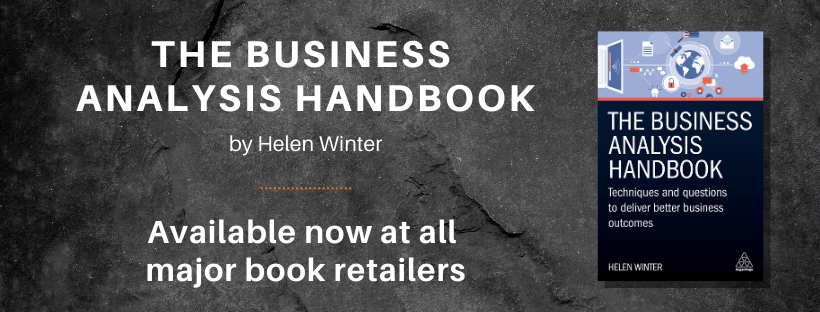
This article is written from my personal experience. It’s been really great to hear about so many people with an interest in this area and wanting to go into this career as their profession. I hope that sharing my experience will be useful to others at the start of their journey.
I chose to do a degree in Business Information Technology at Staffordshire University and it was specifically designed around the skillset of a hybrid manager. The university also had close ties with industries and I was very impressed that there was a huge success rate of graduates getting a job afterwards. It was a sandwich course so involved the third year gaining 12 months’ experience in the industry. In my work placement year, my manager advised me to create a folder of the work I had carried out whilst I was there. He believed that if I took it with me for my first job interview after university it would create a good impression. I did indeed take that folder to my first interview and got the first job I applied for at a big consultancy. The job involved a mixture of business analysis, system analysis, development and configuration of the company’s business intelligence software.
After 3 years as a consultant I wanted a life where I could have hobbies and know where I was going to be each day. I applied for a job as a developer 20 minutes from where I lived to redress my life work balance. I enjoyed it for a couple of years but missed the interaction with the stakeholders I previously had and really wanted to get back into business analysis. By chance there was a business analyst who was struggling on her project because she was clashing with the project manager. It just so happened that I had a good relationship with the project manager so offered to help her with the communication if she in turn let me shadow her to some of her meetings. This led to her mentoring me, eventually letting me take a lead in meetings with the stakeholders and coaching me around how to deal with issues such as when the business were not happy with a solution being proposed by IT. This was one of the causes of the clash between the business analyst mentoring me and the project manager. It was at the start of the internet boom. The business wanted a new website that was easy to use and didn’t put people off using it, IT wanted lots of security and logon checks. With the business analyst mentors guidance I was able to create story boards and work with the business to bring the solution to life. Using this technique helped gain an agreement for moving the project forward.
Every time anyone mentioned they thought I was doing a good job I would ask them if they would mind letting my manager and the business analyst manager know that.
I read Mastering the Requirements Process by Suzanne Robertson and James Robertson cover to cover several times and would experiment with applying the techniques in the book.
I made a huge effort to build a relationship with the business analyst manager and this helped build up further opportunities. I looked up business analysis courses and discovered about the ISEB business analysis diploma. I wrote a business case and managed to get approval to do it.
The most useful course I did was called business systems investigation. It was an intensive 5 day residential course where it taught its students to put a feasibility study together. What really stands out to me was that it’s important to prepare for a meeting with some questions and what to achieve from it, however if a stakeholder comes in prepared with their own documentation then it may be better to forget about the questions you were going to ask and instead get them to walk you through what they have brought. The course included role playing so you would be observed and get feedback afterwards.
I had a setback when I was told that I couldn’t be given a business analyst role formally because it would be considered a promotion and I would eventually have to go back to my old job. I felt gutted because I had been so sure that I had learnt so much and really wanted to be recognised as a business analyst. I really didn’t know what to do. I had completed the ISEB Business Analysis diploma, persuaded a Business Analyst to mentor me, shadowed several other Business Analysts and carried out some Business Analysis work on my own.
By chance the head of department was trying to incentivise staff to complete a form and offered to take the first 3 people out to lunch. I made sure I did this so could ensure that he knew who I was and whether he could give me some advice. He suggested I set up a meeting to discuss it with him. I took with me examples of my achievements and the feedback I had collated.
Not long afterwards I was promoted to a business analyst and told that I had impressed with the level of pro-activeness.
Summary
So, if you are looking to become a business analyst then my advice would be the following:
- Decide whether business analysis is for you. When I have mentored others in the past many have decided that it isn’t suitable for them because it isn’t a task oriented job and frequently means stepping outside comfort zones each time when being placed on a new project. Starting off with lots of unknowns and having so many different approaches available can be intimidating. Would you want that?
- The following article A guide to self-evaluation of Business Analysis skills will give you an overview of the skillset required. Look at where you already have cross transferable skills.
- Read about business analysis and go on courses, there are many techniques that can be useful.
- Find out whether you can gain exposure of working alongside or shadowing a business analyst to learn what they do. If you can shadow more than one, then it will help expose you to more styles as every business analyst will work in a slightly different way. If you asked several different business analysts how they would do something you may get several different answers.
- Look for opportunities to build relationships with those that are either business analysts already, can give you advise on what steps to take or can have an influence.
- Collate examples of your achievements that relate to business analysis.
- Proactively ask for feedback.
- One of the qualities as a business analyst is tenacity. So don’t always expect to get what you want first time around.
- Decide what route to take:
- Applying for jobs as a trainee business analyst.
- Start off in a different job in a company that has business analysts and do what I did and befriend a business analyst and get others to build up confidence in you.
- Start off in a different job but that can involve business analysis activities. I know some subject matter experts that get involved in projects and do business analysis tasks.
Further tips for getting on the career path as a Business Analyst can be found here
Thoughts? Questions? Please share in the comments.
If you have found this article useful then you might like my book – The Business Analysis Handbook – Techniques and Questions for better Business Outcomes. The book is available from www.koganpage.com and all major print and e-book retailers.


Thanks for sharing Helen! I found it useful. Keep it up, I’d love to see more information 🙂
Thanks Sergey. I’ve now added more information about it. Essentially there are 3 main routes. 1. Starting out as a trainee business analyst, 2. starting out in a different job but in a company that has business analysts and seeing whether you can work with one or 3. starting out in a different job but one where you can get involved in business analysis activities. I did the middle one. I found out recently that 2 of the SME’s I worked with at a previous company who were really helpful to me became business analysts afterwards. Regards, Helen